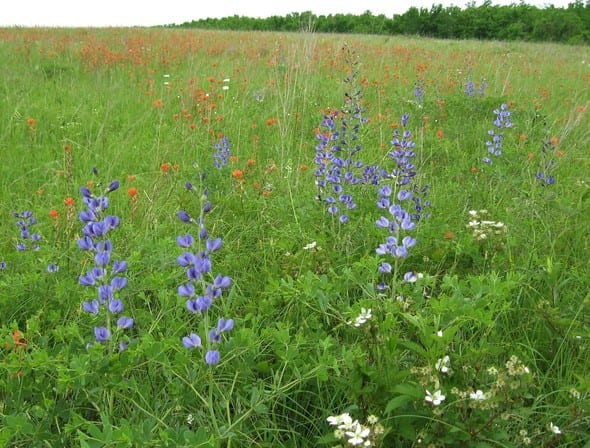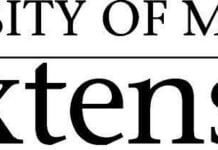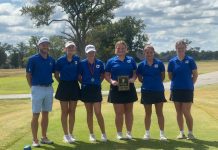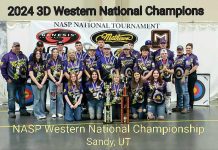

- This event has passed.
Habitats: A Frontier Relic – Our Missouri Prairie
July 6, 2021 @ 6:00 pm - 7:30 pm

The patches of tallgrass prairie scattered across Missouri today are remnants of the native grassland habitat that once covered more than a third of the state. Today’s prairie sites provide glimpses of why this habitat is so unique.
People can learn more about prairies at “Habitats: A Frontier Relic – Our Missouri Prairie,” the title of two free Missouri Department of Conservation programs coming up in July. An in-person program will be 6-7:30 p.m. on July 6 and a virtual option of this event will be presented from 6-7:30 p.m. on July 7. These events are being put on by the staff of MDC’s Shoal Creek Conservation Education Center in Joplin.
The July 6 in-person program is limited to 32 people and will be taught in the Shoal Creek Center’s classroom. The Shoal Creek Center is located at 201 W. Riviera Drive in Joplin. People can register for this program at:
https://mdc-event-web.s3licensing.com/Event/EventDetails/178285
People wishing to tune in to the July 7 virtual program can register at:
https://mdc-event-web.s3licensing.com/Event/EventDetails/178282
At these programs, MDC Conservation Educator Jeff Cantrell will use the youthful days of famed scientist George Washington Carver as a lens to view what Missouri’s prairies were once like. Carver, who spent part of his boyhood in Newton County in the latter 19th century, saw a much different landscape than what is there today.
Today, Carver’s birthplace near Diamond is a national monument (George Washington Carver National Monument) and portion of this site is restored native grasslands. It’s a small symbol of a native grassland “sea” that covered approximately 15 million acres of the state. This vast grassland and its diverse composition of native plants formed a special habitat for a suite of insects, birds, and other animals that have preferences for native grasslands.
Even by Carver’s youth, agriculture and human development were rapidly changing Missouri’s prairies. Today, fewer than 90,000 acres of original tallgrass prairie can be found the state. It’s not a coincidence that a number of wildlife species that prefer prairie habitats have also experienced population declines.
Registration is required for both the in-person and virtual programs. People registering for the virtual program must provide an e-mail, so a program link can be sent to them. This online program will include a chat-based question-and-answer period where participants can interact with the presenters.


The patches of tallgrass prairie scattered across Missouri today are remnants of the native grassland habitat that once covered more than a third of the state. Today’s prairie sites provide glimpses of why this habitat is so unique.
People can learn more about prairies at “Habitats: A Frontier Relic – Our Missouri Prairie,” the title of two free Missouri Department of Conservation programs coming up in July. An in-person program will be 6-7:30 p.m. on July 6 and a virtual option of this event will be presented from 6-7:30 p.m. on July 7. These events are being put on by the staff of MDC’s Shoal Creek Conservation Education Center in Joplin.
The July 6 in-person program is limited to 32 people and will be taught in the Shoal Creek Center’s classroom. The Shoal Creek Center is located at 201 W. Riviera Drive in Joplin. People can register for this program at:
https://mdc-event-web.s3licensing.com/Event/EventDetails/178285
People wishing to tune in to the July 7 virtual program can register at:
https://mdc-event-web.s3licensing.com/Event/EventDetails/178282
At these programs, MDC Conservation Educator Jeff Cantrell will use the youthful days of famed scientist George Washington Carver as a lens to view what Missouri’s prairies were once like. Carver, who spent part of his boyhood in Newton County in the latter 19th century, saw a much different landscape than what is there today.
Today, Carver’s birthplace near Diamond is a national monument (George Washington Carver National Monument) and portion of this site is restored native grasslands. It’s a small symbol of a native grassland “sea” that covered approximately 15 million acres of the state. This vast grassland and its diverse composition of native plants formed a special habitat for a suite of insects, birds, and other animals that have preferences for native grasslands.
Even by Carver’s youth, agriculture and human development were rapidly changing Missouri’s prairies. Today, fewer than 90,000 acres of original tallgrass prairie can be found the state. It’s not a coincidence that a number of wildlife species that prefer prairie habitats have also experienced population declines.
Registration is required for both the in-person and virtual programs. People registering for the virtual program must provide an e-mail, so a program link can be sent to them. This online program will include a chat-based question-and-answer period where participants can interact with the presenters.













